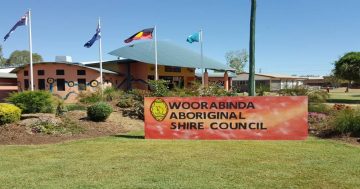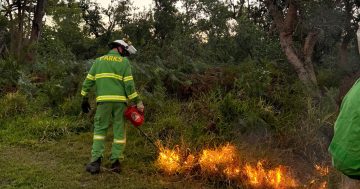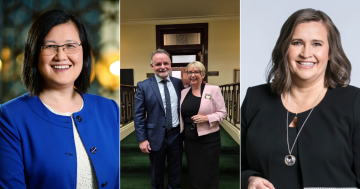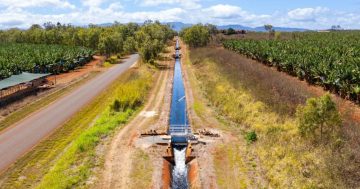 1. This week 10 years ago, the Federal Parliament passed new laws overhauling the Commonwealth’s Public Service and military superannuation schemes.
1. This week 10 years ago, the Federal Parliament passed new laws overhauling the Commonwealth’s Public Service and military superannuation schemes.
Minister for Finance and Deregulation, Senator Penny Wong said the establishment of the Commonwealth Superannuation Corporation (CSC) as the consolidated trustee would help secure increased superannuation benefits for thousands of military and civilian scheme members.
Minister Assisting on Public Sector Superannuation, Senator Nick Sherry said the changes would combine the funds of more than 680,000 members and pensioners, with assets totalling more than $21 billion.
“Consolidation of the funds will produce a more efficient trustee operation and better services for all members,” Senator Sherry said.
2. NSW Premier, Barry O’Farrell announced new powers for the Independent Commission Against Corruption (ICAC) as well as strengthened protections for whistleblowers and changes to the rules for Government advertising that would “restore integrity to Government in NSW”.
He said public authorities would be required to designate an officer to receive information from whistleblowers and report back to people making disclosures within 45 days.
“In making these changes, we have taken on board the recommendations of the Ombudsman to further strengthen our original plans to give whistleblowers more protection,” Mr O’Farrell said.
3. This week last decade, the South Australian Government settled its Constitutional challenge against Victoria’s water trading rules.
In a joint statement with the Victorian Minister for Water, the SA Government said a combination of new actions by Victoria and changed circumstances in water availability in the Murray–Darling Basin had led the States to the mutually agreed settlement.
It said the agreement gave South Australia the right to purchase water from Victoria to meet any potential shortfall in critical human needs. In addition, Victoria would immediately sign the relevant schedules under the Murray–Darling Basin Agreement to provide South Australia with permanent rights to store water in upstream storages such as the Hume and Dartmouth dams.
4. Queensland Minister for Health, Geoff Wilson announced new laws to ban cigarette displays in shops and other retail outlets, aimed at reducing the uptake of cigarette smoking, particularly among young Queenslanders.
“Smoking kills an estimated 3,400 Queenslanders every year, with more than 30,450 people admitted to Queensland hospitals each year for smoking-related illnesses,” Mr Wilson said. “Those are truly shocking statistics and we have to do everything possible to not only help those Queenslanders who smoke kick the habit but prevent our future generations from taking it up.”
He said restricting retail advertising had been shown to be an effective strategy.
5. In South Australia, the State Emergency Centre (SEC) was recognised by the Australian and Samoan governments for the medical assistance it provided following the 2009 Samoan tsunami.
Prime Minister of Samoa, Tuilaepa Aiono Sailele Malielegaoi met with Australian Prime Minister, Julia Gillard and SA Minister for Health, John Hill to congratulate the medical team, which was led by State Controller of the SEC, Dr Bill Griggs. Mr Hill said Dr Griggs had assembled his team of 12 medical professionals in less than 90 minutes to fly to Samoa to help the victims of the tsunami.
“The team paired up with Queensland’s response team to perform surgeries, help manage the emergency departments, assist with search and rescue in the field and facilitate evacuations in the first five days after the disaster,” Mr Hill said.
6. And this week 10 years ago in Western Australia, Minister for Local Government, John Castrilli introduced the Cat Bill 2011 into Parliament, with new rules governing the control and ownership of cats.
He said the Act would include compulsory identification, registration and sterilisation of domestic cats and give local governments the power to administer and enforce the legislation. The new laws would save thousands of feline lives by reducing the number of cats euthanised and encouraging responsible cat ownership.
“Allowing unwanted cats to face starvation and neglect is unacceptable to both the community and the State Government,” Mr Castrilli said. “There is overwhelming support for these initiatives from both cat owners and non–cat owners.”











